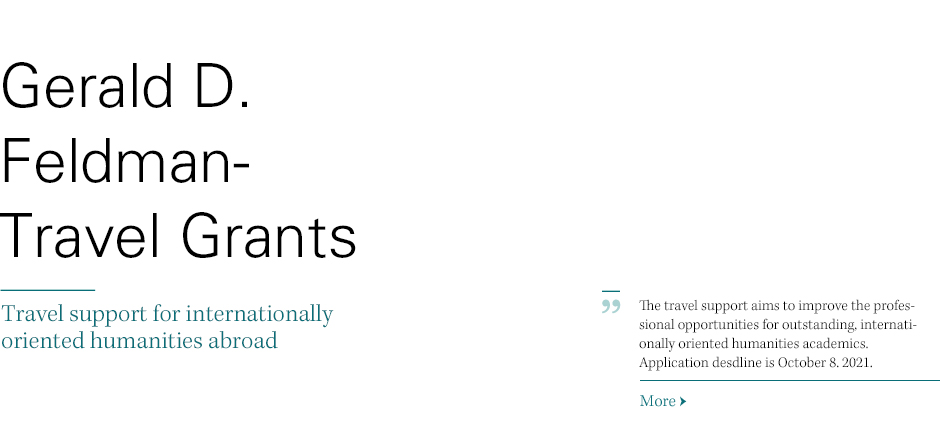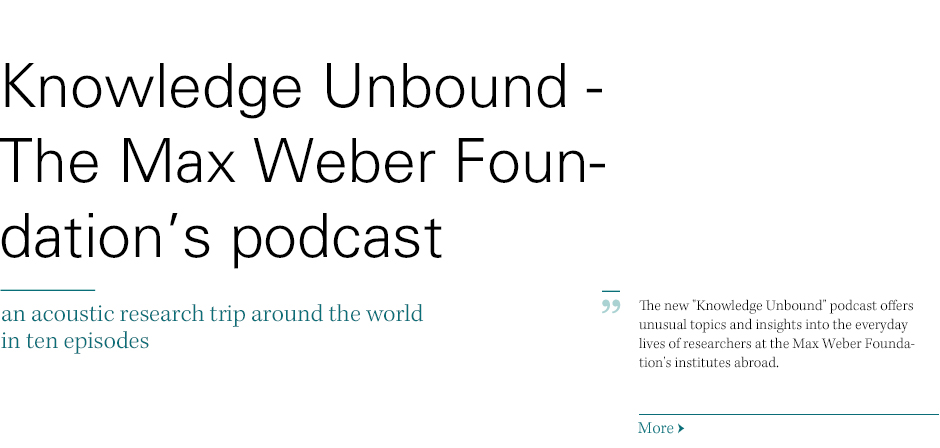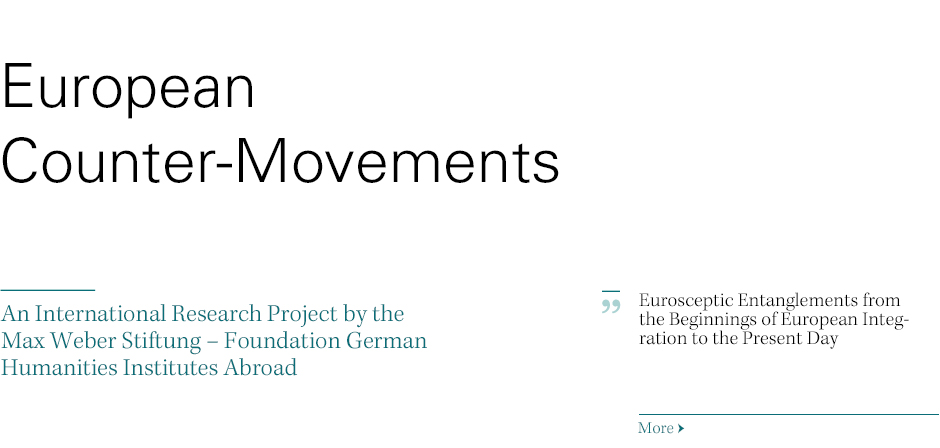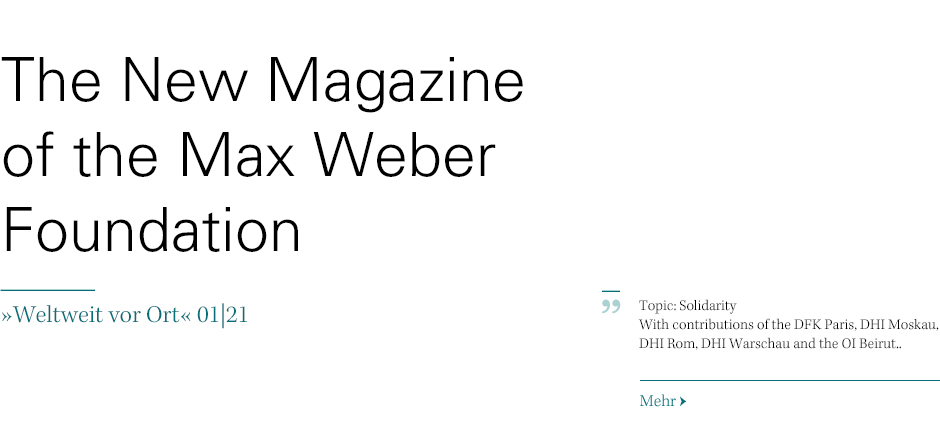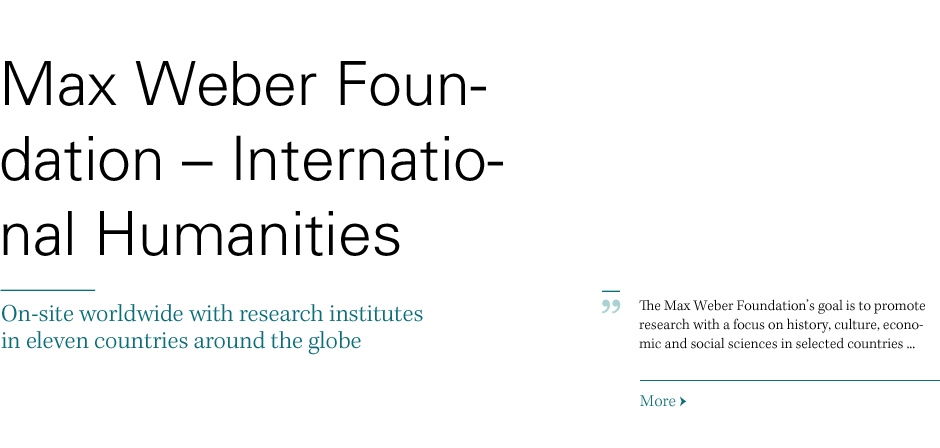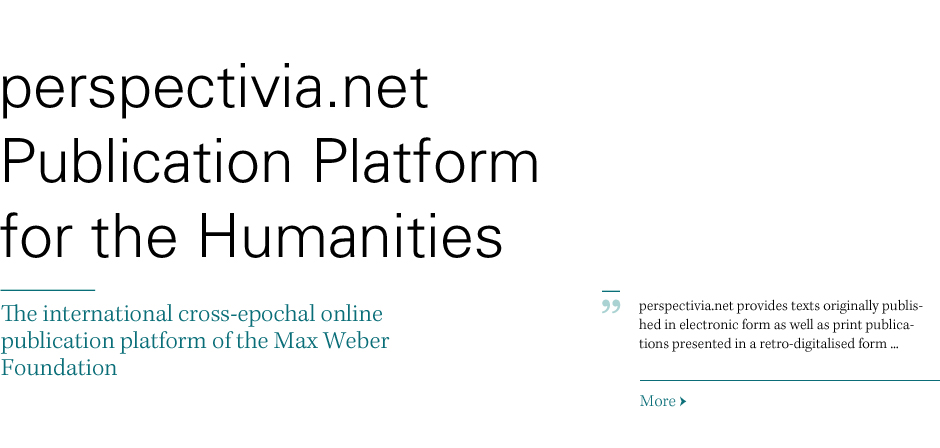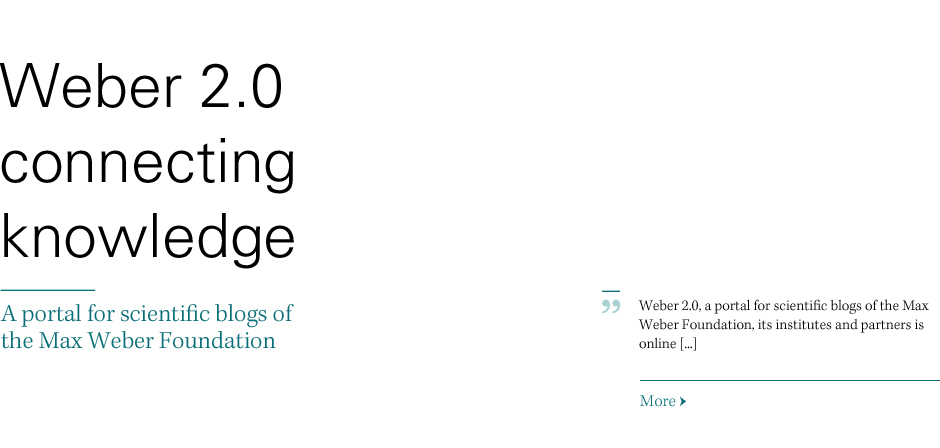Ausschreibung: Wissenschaftliche/r Mitarbeiter/in für die Abteilung Digitale Geschichtswissenschaft (w/m/d) (DHI Paris)
News
Dialoge über eine Gesellschaft im Wandel
Ferdinand Gregorovius. Der Historiker und Schriftsteller des 19. Jahrhunderts neu gelesen
Geschichte wird nicht ausradiert, sondern angemessener erzählt
68 war anders
Die Phantomspiele von 1940
Forschungsaufenthalte im Ausland ermöglichen
Wissenschaftliche Kommunikation in und durch Forschungsdaten
"Die Menschen in Belarus sind zu Geiseln geworden"
Belarussen in Litauen: Schockiert aber nicht sprachlos


